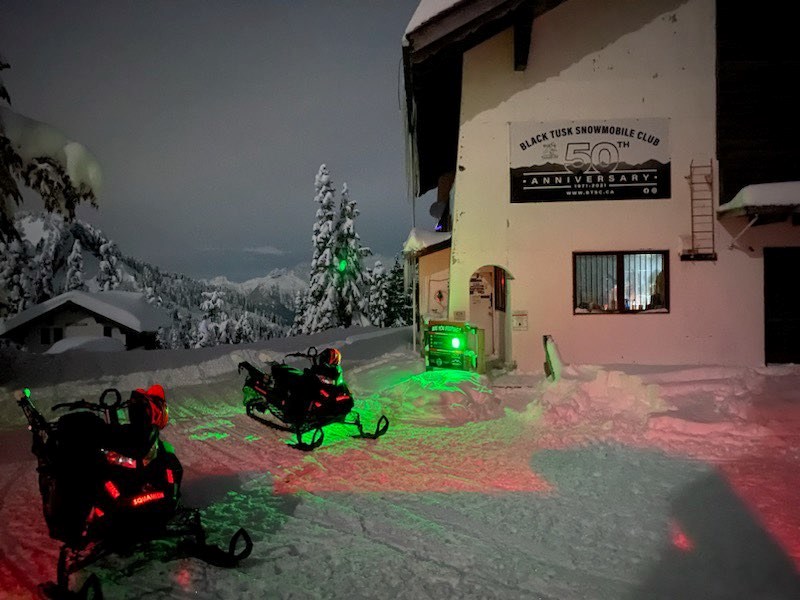Squamish Search and Rescue came to the aid of two snowbikers who were stranded in a gully around the south side of Brohm Ridge.
On March 5, crews received a callout for the incident at 4:30 p.m.
"Working with the Black Tusk Snowmobile Club, those guys have really good area knowledge and they were able to give us some likely areas, and we spotted them from our helicopter rescue flight," said rescue manager B.J. Chute.
Chute said they found the people in need of aid at No Name Peak.
The pair had somehow found themselves in a gully where they could not go on foot or in their vehicles.
After they were found, aerial crews went into action.
"Those two were extracted by a longline technician operation and they were lifted from where they were stranded to near the cabin on Brohm Ridge," said Chute.
However, once they were dropped off at the cabin, it was too dark for the helicopter to operate. The chopper had to fly back to base. In the meantime, the people who were just rescued, as well as the longline technicians, had to wait at the shelter.
Anticipating that, SAR crews had already mobilized a ground team that was on its way.
A group on snowmobiles then arrived and brought everyone back to safety.
Chute said that so far, this year's call count has been on par with previous ones.
There have been 12 callouts this year as of March 6.
Last year and the year before, that number was close to the same, Chute said.
One encouraging piece of news is that people who've been recreating in the backcountry have generally been prepared, he said.
However, he noted it's good to remind people that winter SAR rescues are significantly more time-consuming, especially if the area involves avalanche terrain.
"It simply takes longer for people to gear up," said Chute. He also noted that shorter daylight periods are also an issue.
"They do need to be prepared and prepared to the point of self-rescue," he said. "So that if we're not able to fly, if we're not able to access the area at night because of avalanche terrain or weather, then the SAR response could be delayed because of factors outside of our control."
He also said that it was important to reiterate that search and rescue is activated for free by calling 911 or pushing the SOS on a satellite emergency communicator, such as an inReach, Spot or Zoleo.
Chute also weighed in on Apple's SOS systems, which have been blamed by some agencies for broadcasting false alarms. He noted that this system resulted in a legitimate operation for a motorist stranded in the Squamish Valley.
"We're actually still in the process of trying to learn how exactly they work and our provincial body, the B.C. Search and Rescue Association is hosting some training seminars with Apple in the coming weeks," he said.




